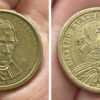M any readers of The Gate who commented on this article pertaining to the announcement last year from the General Services Administration of the United States that it awarded the government contract for 2016 on the Washington-Dubai route to JetBlue Airways were outraged over the fact that because JetBlue Airways does not actually offer service to Dubai from the United States, that Emirates Airline — which is an official codeshare partner with JetBlue Airways — would be solely operating this route carrying an estimated 15,000 government employees of the United States, which includes active duty military personnel whose official travel is funded by taxpayers of the United States.
JetBlue Airways Awarded Government Contract for Service to Milan — But Again, There is One Minor Detail…
Since that article was written and posted, a second government contract was reportedly awarded to JetBlue Airways for service between New York and Milan — even though JetBlue Airways does not actually offer service to Milan from the United States — and once again, Emirates Airline was actually the beneficiary of that contract, as it is the airline which operates service for that route as an official codeshare partner with JetBlue Airways.
The Partnership for Open & Fair Skies — which lobbies for American Airlines, Delta Air Lines and United Airlines in their fight against the troika of Mideast Gulf carriers known as Emirates Airline, Etihad Airways and Qatar Airways — has accused the General Services Administration of the federal government of the United States of violating a law known as the Fly America Act against air travel for government employees funded by taxpayers.
“Prior to these decisions, American Airlines held the contract for the New York-Milan route and United Airlines provided the Washington Dulles-Dubai service”, according to this article written by Rich Thomaselli for TravelPulse.
“JetBlue is not asking Emirates to supplement its own flights … it is asking Emirates to provide all of the service between JFK and Milan that the contract requires”, according to Peter Carter — who is the chief legal officer of Delta Air Lines — in this article written by Kate Modolo for Delta News Hub. “Congress designed the Act ‘… to help improve the economic and competitive position of U.S. flag carriers against foreign air carriers.’ Emirates is not just a foreign air carrier, it is a state-owned Gulf carrier that exploits an improper advantage over U.S. flag carriers by receiving massive subsidies from its home government. This appears to be a glaring contravention of the Fly America Act’s vision … [that] will impair the ability of U.S. carriers to compete in that market.”
Summary
Leaders of the three legacy airlines based in the United States continuously claim that the three largest airlines based in the Persian Gulf region have expanded rapidly with illegal government subsidies totaling a minimum of $42 billion and that they cannot compete.
When I hypothetically asked whether or not the three airlines based in the Persian Gulf region could sustain a prolonged period of lower fuel prices — if indeed they were being subsidized illegally by their respective governments, as the chief executive officers of the three legacy airlines based in the United States allege — a reader of The Gate who goes by the name Paul posted this comment: “Our own economy hasn’t been doing great for a while now and we are continuing subsidizing American/United/Delta. What makes you think this wouldn’t be the case for the Middle East?”
The awarding of contracts for two transatlantic routes to JetBlue Airways by the General Services Administration of the United States just seems odd at best. Did JetBlue offer bids significantly low enough as compared to its domestic competition — and if so, could those bids possibly have been subsidized by Emirates Airline?
Airlines based in the United States should be free to engage with airlines who are foreign partners to form codeshare arrangements — but to have taxpayer dollars fund an arrangement where the airline with the successful bid does not even operate any flights on a particular route is simply ludicrous, in my opinion.
Photograph ©2014 by Brian Cohen.

